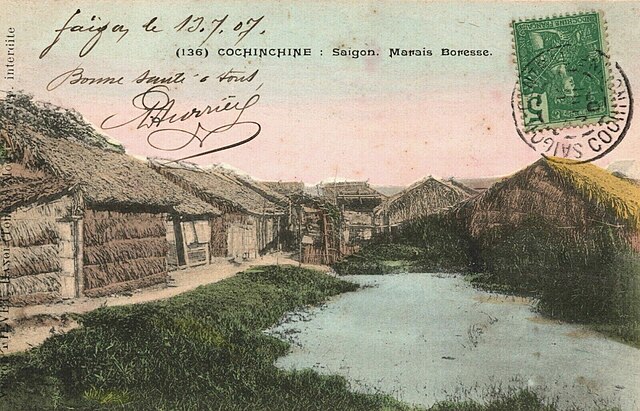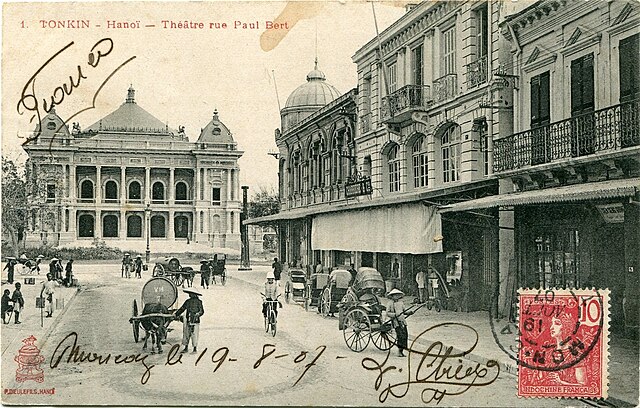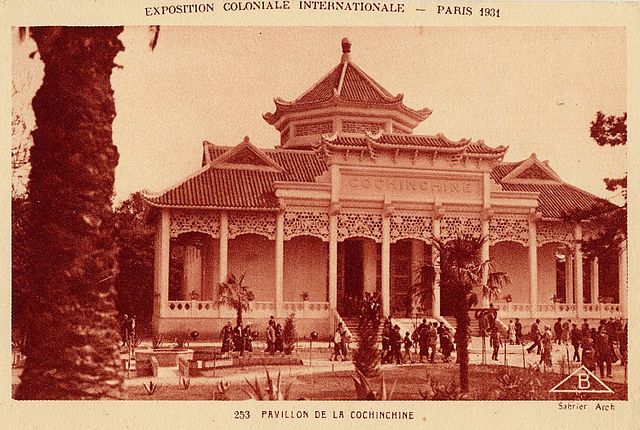
Thammasat University students interested in political science, history, ASEAN studies, Vietnam, law, sociology, and related subjects may find it useful to participate in a free 18 April Zoom webinar on Vietnam’s Leadership Reshuffle: Dynamics, Implications and Prospects.
The event, on Tuesday, 18 April 2023 at 1pm Bangkok time, is presented by ISEAS – Yusof Ishak Institute, Singapore.
The TU Library collection includes several books about politics in Vietnam.
Students are invited to register at this link:
https://us06web.zoom.us/webinar/register/WN_zbD80G8VR3asazFUZ8_3Jw#/registration
The event announcement states:
About the Webinar
Vietnam has recently undergone a major leadership shakeup, with the state president and two deputy prime ministers being replaced in quick succession. This has sparked concerns among investors and raised questions about the country’s political stability at a time when its economy is struggling to overcome strong headwinds generated by both domestic problems and global geopolitical and economic uncertainties.
This webinar will delve into the reasons behind these leadership changes, and their implications for the country’s domestic and foreign policy. It will also provide an initial assessment of potential further developments and the nation’s economic and political prospects in the lead up to the 14th National Congress of the Communist Party of Vietnam, slated for early 2026.
About the Speakers
Linh Nguyen is an Associate Director at Control Risks, a global risk consultancy, covering Southeast Asia. […]
Dr. Nguyen Khac Giang is a Visiting Fellow at the Vietnam Studies Programme of the ISEAS – Yusof Ishak Institute and previously served as the Head of the Political Research Unit of the Hanoi-based Vietnam Institute for Economic and Policy Research (VEPR). […]

In an article posted last year on the website of the University of Melbourne, he noted:
On a trip to Vietnam in June, Australian Foreign Minister Penny Wong said the partnership between Australia and Vietnam “is grounded in trust” and that Hanoi “understands and shares our [Australian] vision for the region”.
Wong’s selection of Vietnam as one of her first ASEAN visits was welcomed in Hanoi, particularly at a time when the Southeast Asian state, like Australia, is also hedging against an increasingly precarious geopolitical environment. In less than three months, Vietnamese foreign minister Nguyen Thanh Son paid a reciprocal visit to Australia in September 2022, the first by a Vietnamese minister since 2019. This was followed by another official visit by Vuong Dinh Hue, the chairman of Vietnam’s National Assembly and a strong candidate for the country’s next top leadership role, in early December.
Assuming Wong’s statement is not purely diplomatic, an interesting follow-up question would be whether Canberra also understands and shares the Vietnamese vision for the region. In other ASEAN capitals, Southeast Asian leaders are perhaps pondering the same question as Australia under the new administration has been developing a new engagement strategy, which is likely to be unveiled next year.
Wong’s emphasis on trust resonates with one of Vietnam’s key foreign policy themes of “strategic trust”, which was first proposed by the former PM Nguyen Tan Dung in his keynote speech at the Shangri-la Dialogue in 2013. For Hanoi, trust is not a passing reference but one of the key pillars in constructing its foreign relations.
It partly explains many of Vietnam’s foreign policy choices, such as its diplomatic hierarchy. For example, while Russia is considered a “comprehensive strategic partner” (along with China and India), the United States is only a “comprehensive partner”, which is two levels lower. Economic and security interests alone cannot explain this differentiated treatment. For reference, Australia is a “strategic partner”, a half-level lower than Japan (an extensive strategic partner) but similar to Vietnam’s 12 other partners including major Southeast Asian and European countries as well as New Zealand.
What does Hanoi mean by “strategic trust” and how can Australia cultivate it?
There are two main levels of trust in strategic terms for Hanoi. At the international (multilateral) level, as indicated in PM Dung’s speech, the two crucial components of “strategic trust” are the “rules-based international order” and the “efficiency of multilateral security cooperation mechanisms”, both of which would be gladly agreed by Canberra.
Indeed, Australia has been active in collaborating with Vietnam across various regional platforms, including the East Asia Summit, ASEAN Defence Ministers Meeting Plus, and ASEAN Regional Forum, as well as being an ardent supporter of international law in the face of China’s increasing aggression on the South China Sea.
However, similar to other Southeast Asian states, there are concerns from the Vietnamese side on how Australia views regional cooperative platforms when it joins exclusive security-focused groups such as the Quadrilateral Security Dialogue (Quad) and AUKUS. Although Vietnam implicitly welcomes such new security initiatives, Hanoi rightly worries about the potential marginalisation of ASEAN’s centrality as “mini-lateralism” replaces more inclusive mechanisms where all stakeholders are able to participate. Defective as they might appear, ASEAN-led groups provide important channels for Vietnam to pursue its foreign policy goals.
In addition, Australia’s focus on “coordination among like-minded countries” as well as its US alliance create an impression that Canberra simply bandwagons US policies in its pivot to Southeast Asia. Since “strategic trust” implies a long-term commitment, the lack of perceived independence in foreign policymaking will be an impediment for mutual understanding. This perception is certainly a misunderstanding of Australian foreign policy, but it is not uncommon. Better and more frequent communication from Canberra about its own regional vision, as a result, would be important to reassure Hanoi and its other partners.
At the bilateral level, trust-building requires a certain degree of mutual interests, which Hanoi and Canberra certainly possess, a deep understanding of each other’s preference and strategy, as well as the right means of engagement. In all areas of the bilateral relationship there is a plenty of room for improvement. […]
It is also important to note that “strategic trust” is not just about shared threats. China is not Vietnam’s only concern: it is very vulnerable to climate change, struggling with infrastructural deficits, and facing monumental environmental problems. Australian expertise can make a difference. There have been recent commitments from both sides for increasing cooperation in all those areas, but actual progress remains to be seen.
Vietnam does not want to be drawn into the great power competition. It avoids taking sides and is actively seeking hedging options to navigate through the increasingly precarious geopolitical environment in the Indo-Pacific. Thus, to gain Hanoi’s “strategic trust” it is imperative to go beyond the centrality of the China-US rivalry and focus more on meaningful cooperation that can bring about positive changes in the country. There can be no trust without commitment.

(All images courtesy of Wikimedia Commons)
